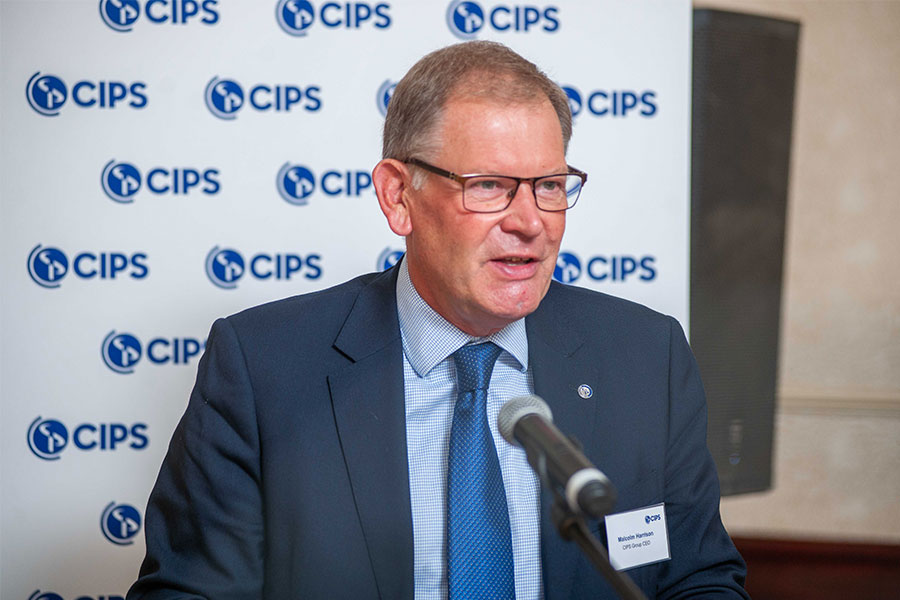Procurement professionals have been thrust into the limelight amid local and global challenges and are perfectly positioned to uplift the Southern African nation
The fall-out from the Covid-19 pandemic, corruption and the conflict in Ukraine have created an extremely uncertain business environment, meaning that effective supply chains have become more important than ever.
According to Malcolm Harrison, CEO of the Chartered Institute of Procurement & Supply (CIPS), speaking during a visit to Botswana, it has become critical for long-established, international supply chains to be flexible and agile during times of disruption to mitigate risk, secure business continuity and benefit customers.
At the end of 2021, Botswana’s economy had recovered to a pre-pandemic levels. But while fiscal and current account deficits narrowed and foreign reserves stabilised, inflation exceeded the central bank’s medium-term targets and unemployment rose close to record highs.
Coupled with issues that can create volatile trading relationships such as China’s uneasy relationship with the United States and, more recently, the war in Ukraine, the situation is daunting. But procurement professionals are rising to the challenge, Harrison says.
Malcolm Harrison commented: “Procurement professionals have always managed to navigate disruption, perhaps not always on the scale we have seen recently, but they are adept at finding solutions. This is when the profession comes into its own, demonstrating its core value to business strategy and continuity.”
The government of Botswana has reset priorities which include public service reforms and digitalisation of government systems – something Harrison believes will go a long way in driving procurement reforms and creating effective communication platforms.
Harrison continues: “Digital transformation will increase public value and trust, lead to greater transparency, stimulate proactive service delivery and enable economic development and growth.
“But it’s vital reform must ensure that procurement professionals embed both ethical and sustainable practices at the heart of their operation.
“The world is rapidly running short of vital, natural resources. Wildfires droughts and floods are a regular occurrence, and we can expect to have to live them for the foreseeable future. Now is the time for procurement teams to get a handle on this.
“In many organisations, 90% of their environmental impact lies within their supply chains. No organisation can successfully address climate change or environmental impact, or truly have a sustainable business model unless they focus on working with suppliers to address these urgent issues.”
The Intergovernmental Panel on Climate Change report in 2021 declaration of “code red for humanity” has made it a business imperative to increase the focus on actions to establish more sustainable supply chains.
Harrison made his comments during a visit to Namibia, Botswana and South Africa, speaking at a number of events across the Southern African region including the CIPS graduation ceremony in Johannesburg, South Africa.
The gala graduation ceremony was held at the Hilton Hotel in Sandton and attended by 250 dignitaries, including the Gaborone City Council, Botswana Public Procurement Regulatory Authority as well as family and friends of the graduates.
CIPS provides universities, study centres and students the opportunity to access teaching and learning of a world-class professional qualification, ultimately enabling and growing the procurement and supply chain profession.
According to Harrison, for procurement professionals to not only negotiate but overcome the many challenges disrupting supply chains, both in Botswana and globally, they must:
- Embrace technology and seek out new opportunities to find better ways of working and drive greater transparency for risk and sustainability;
- Understand the available data and become a go-to person for stakeholders to gain valuable insights and information;
- Embed themselves within the business and align with stakeholders’ goals and language.
- Be brilliant in everything they do, and build a reputation for always delivering on time;
- Seek out opportunities to embed sustainability and local value within sourcing projects.
Harrison concludes: “Procurement professionals are in a very privileged position to make significant changes for good, and should use their knowledge, skills and influence over supply chains to make a difference now and for future generations”
